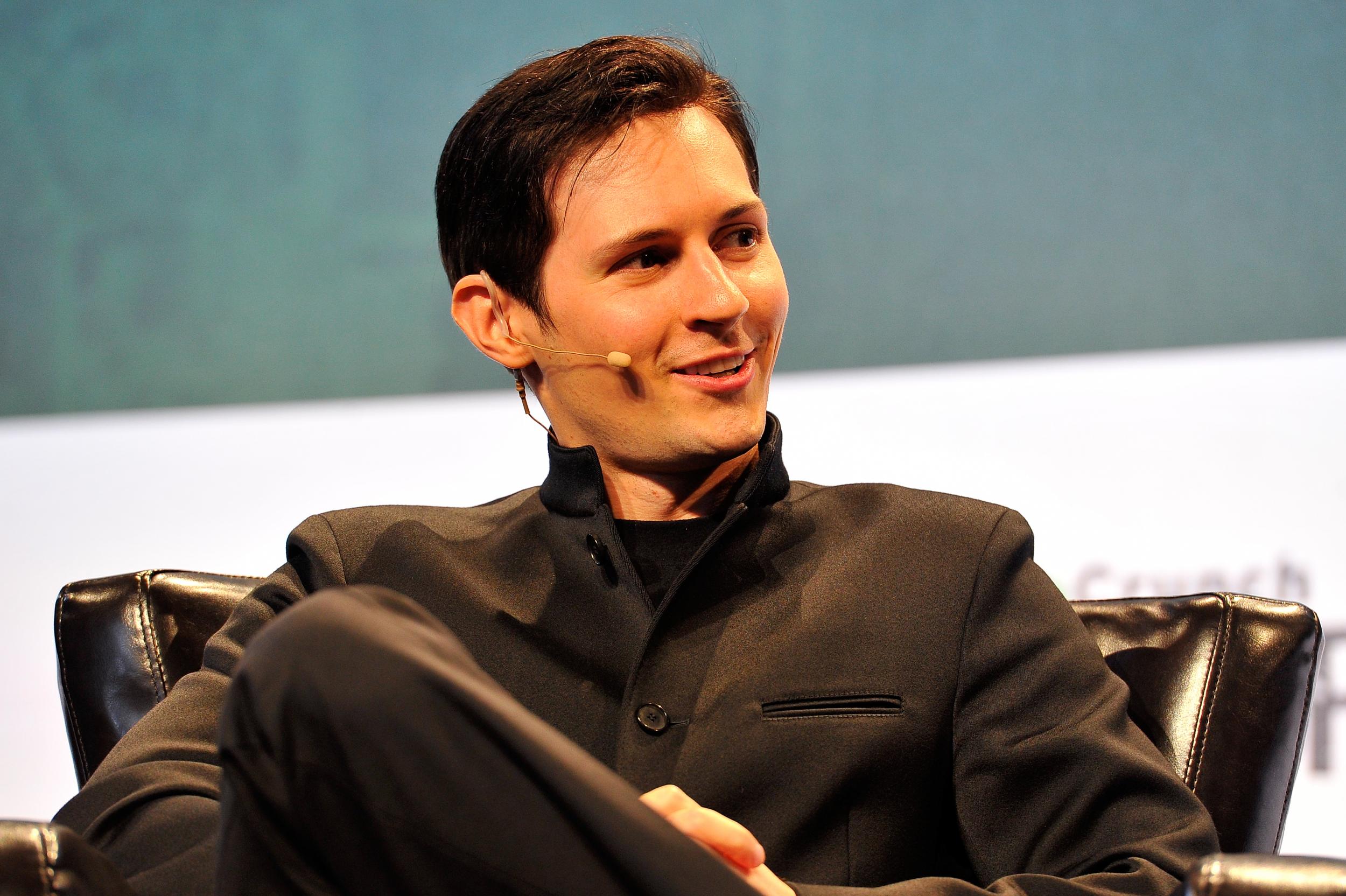Who is the billionaire Russian exile behind Telegram – and why does Musk have him in his sights?
Pavel Durov is vehemently opposed to censorship on his messaging platform, even if it is used by far-right rioters or even terrorists, as Chris Blackhurst explains


Could it be that Elon Musk is running scared? In recent days, the personal motivation of the multibillionaire and tech innovator has become a hot topic. What possesses such an obviously intelligent person to voice support for the far-right thugs and their leader, Tommy Robinson? At best, it is polarising and will alienate many of his customers, including possibly those of his Tesla cars.
Why, suddenly, is he so opposed to the government of Sir Keir Starmer? Previously, he was an admirer of Rishi Sunak, and the Tory approach to the unrest would have been little different from Labour had they been in power. Yet, Musk has turned on Starmer with barbs that are at times personal. These and other questions have been raised about Musk’s behaviour.
One possibility is that he is advocating free speech and, as the owner of X, he fears whatever curbs Starmer may be planning with the Online Safety Bill.
Certainly, he appears to be laying down a challenge that Starmer et al are threatening the very principle of freedom of expression in moving against social media.
However, his reasoning may be further explained by the realisation that his channel has a rival which is growing in popularity and which authorities are struggling to touch. The increasing success of Telegram might well be what is prompting Musk, with his 193 million followers on X, to become a one-man advert for his own platform.
Because of Musk’s posts and Robinson being readmitted to the platform, you could be forgiven for supposing X is the network of choice for organisers of anti-immigrant disturbances. It isn’t; that dubious status belongs to Telegram, an underground app which claims 950 million users.
Telegram has an even greater claim on free speech than X. Whereas the latter was set up as a social network, Telegram was created to propound free speech. It was founded in opposition to the growing censorship in what was then the native Russia of its co-founders.
Since then, it’s evolved into an essentially unmoderated chatroom. Along the way, it became a poster network for crypto users. In 2017, Telegram formed its own blockchain, TON. The unregulated subsequent sale of $1.7bn worth of cryptocurrency drew the attention and ire of the financial regulators and, in 2019, Telegram was ordered to return the money and fined nearly $21m by the US Securities and Exchange Commission.
Telegram’s recent use by the rioters and their leaders has aroused controversy. When Robinson (real name Stephen Yaxley-Lennon) was banned from X, he turned to Telegram. His popularity there may explain why Musk felt the need to rescind his ban.

Telegram was co-founded by two exiled billionaire Russian brothers, Pavel and Nikolai Durov, in 2013. Pavel had created the Russian rival to Facebook, VKontakte, in 2006. As that grew in reach and audience, it also came up against President Vladimir Putin’s desire to quash online opposition.
Putin’s resulting purge saw Pavel lose control of VKontakte. He fled and set up Telegram from the safety of Berlin. Today, its official headquarters are given as the British Virgin Islands but it is operated day to day from Dubai, where Pavel holds citizenship and is estimated by Forbes to have a net worth of more than $15bn.
It began as an instant messenger, like Facebook Messenger and WhatsApp, but is now more akin to a social network with its own user groups. One of the attractions is the potentially substantial size of these groups. Users can join groups of up to 200,000 and create “broadcasts” that others can follow and leave comments on.
The beauty of Telegram for its users is that it remains below the radar – hidden, except to its users. As well as the channels, they can enjoy a more extensive and quicker messaging service than that offered by WhatsApp.
During the riots, shadowy groups such as Unity News Network (UNN), Patriotic Alternative and Southport Wake Up have become pivotal discussion boards and information streams for conspiracy theorists. Hope not Hate has been tracking them. Its director, Joe Mulhall, said that a user will “say something like: ‘Nottingham rising, we’ll be here at 3pm on Saturday’, and no one has any idea who that is.”
Because it’s private, Telegram makes moderation difficult. A single chat can have 100,000 members and contain material that might be deemed offensive but because that group is private, not public, it can’t be seen by anyone on the outside.
Even then, it’s unlikely Durov will respond to a complaint. Isis was using Telegram but he did little to prevent it, clinging to the belief that “our right for privacy is more important than our fear of bad things happening, like terrorism”.
Telegram is not end-to-end encrypted by default, like the messaging service Signal, so can be monitored by the authorities, but it contains a “secret chat” function that users can select to secure privacy.
A spokesperson for Telegram said “calls to violence” were explicitly forbidden and that channels and posts containing them were removed.
Moving against Telegram and shutting down its groups would be difficult. Telegram was designed to be a vehicle for free speech – an alternative, deliberately opaque, platform. Its boss is not interested in emulating Musk’s political games and upholds free speech above anything. Coordinating riots and abuse is not what it was intended for but history suggests it will not be told.
This article was amended on 12 August 2024 to include a response from Telegram. It also previously said the platform had 550 million users, but it claims 950 million.
Join our commenting forum
Join thought-provoking conversations, follow other Independent readers and see their replies
Comments

Bookmark popover
Removed from bookmarks